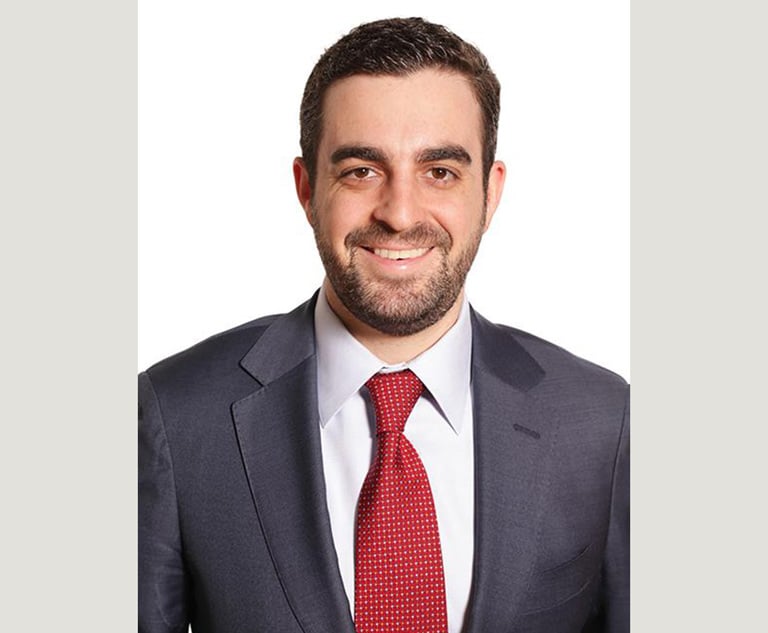 Credit: danielfela/Shutterstock.com
Credit: danielfela/Shutterstock.comCourt: Contractor Overhead, Profit Rightly Excluded From Insurance Settlement
The Pennsylvania Superior Court has ruled that general contractor overhead and profit (GCOP) was not required to be factored into two homeowners' actual cash value settlements with their insurer for water damage to their properties.
August 30, 2018 at 10:17 AM
4 minute read
The Pennsylvania Superior Court has ruled that general contractor overhead and profit (GCOP) was not required to be factored into two homeowners' actual cash value settlements with their insurer for water damage to their properties.
In reversing the ruling of the lower court, a three-judge Superior Court panel consisting of Judges Jack Panella, Correale Stevens and Judith Ference Olson ruled that not only do the Truck Insurance Exchange policies with plaintiffs Konrad Kurach and Mark Wintersteen explicitly exclude GCOP from actual cash value settlements, but there is no state law requiring the inclusion of GCOP in those payouts.
The plaintiffs sued the defendant for bad faith in connection with their homeowners' insurance policies. The plaintiffs were customers of Truck's who suffered water damage to their homes that was covered by the policies, according to Panella's opinion.
Summarizing the facts of the case, Panella said, “Truck reviewed the claims, and determined that the services of a general contractor would likely be necessary to repair the damaged property. Neither Wintersteen nor Kurach pursued the option to repair their damaged property. Rather, they pursued an alternative remedy provided by their policies: actual cash value settlement. Truck calculated the amount of the actual cash value settlement excluding GCOP. Kurach and Wintersteen believe this exclusion is improper under Pennsylvania law. Wintersteen is a putative class action plaintiff, while Kurach seeks only to vindicate his own rights.”
Truck argued there was a policy exclusion regarding GCOP, but the trial court sided with the plaintiffs' argument that state law required it to be factored into settlement calculations.
“Here, the parties are in conflict over the issue of whether GCOP should have been included in the calculation of the actual cash value settlement,” Panella said. “The homeowner's policy provides that 'actual cash value settlements will not include [GCOP] … unless and until you actually incur and pay such fees and charges, unless the law of your state requires that such fees and charges be paid with the actual cash value settlement.'”
The plaintiffs pointed to the court's ruling in Gilderman v. State Farm Insurance, in which the parties argued over the meaning of actual cash value in a homeowners' policy, determined to be the cost of repairs. Panella noted that the decision never went into public policy.
“In contrast, the Truck policy at issue here explicitly defines actual cash value in a manner congruent with Gilderman: 'Actual cash value—means the reasonable replacement cost at time of loss less deduction for depreciation and both economic and functional obsolescence,'” Panella said. “Also congruent with Gilderman, the policy promises to pay GCOP 'only … if it is reasonably likely that the services of general contractor will be required to manage, supervise and coordinate the repairs.' As highlighted above, the policy then precludes GCOP from actual cash value settlements 'unless and until [the insured] actually incur[s] and pay[s]'”
Robert Feltoon of Conrad O'Brien represents Truck. “Truck is pleased with the outcome of the appeal, and appreciates Judge Djerassi's willingness to authorize interlocutory review of his summary judgment ruling. Feltoon notes that the Superior Court devoted a number of pages in its decision to a discussion of its jurisdiction to hear the appeal, even though the plaintiffs did not oppose on that ground,” he said in an email.
Jonathan Wheeler represents Kurach did not return a call seeking comment. Howard Silverman represents Wintersteen and also did not return a call seeking comment.
(Copies of the nine-page opinion in Kurach v. Truck Insurance Exchange, PICS No. 18-1058, are available at http://at.law.com/PICS.)
This content has been archived. It is available through our partners, LexisNexis® and Bloomberg Law.
To view this content, please continue to their sites.
Not a Lexis Subscriber?
Subscribe Now
Not a Bloomberg Law Subscriber?
Subscribe Now
NOT FOR REPRINT
© 2024 ALM Global, LLC, All Rights Reserved. Request academic re-use from www.copyright.com. All other uses, submit a request to [email protected]. For more information visit Asset & Logo Licensing.
You Might Like
View All
Philadelphia Bar Association Executive Director Announces Retirement
3 minute read
Phila. Jury Hits Sig Sauer With $11M Verdict Over Alleged Gun Defect
3 minute read
Phila. Attorney Hit With 5-Year Suspension for Mismanaging Firm and Mishandling Cases
4 minute read
Trending Stories
- 1Gibson Dunn Sued By Crypto Client After Lateral Hire Causes Conflict of Interest
- 2Trump's Solicitor General Expected to 'Flip' Prelogar's Positions at Supreme Court
- 3Pharmacy Lawyers See Promise in NY Regulator's Curbs on PBM Industry
- 4Outgoing USPTO Director Kathi Vidal: ‘We All Want the Country to Be in a Better Place’
- 5Supreme Court Will Review Constitutionality Of FCC's Universal Service Fund
Who Got The Work
Michael G. Bongiorno, Andrew Scott Dulberg and Elizabeth E. Driscoll from Wilmer Cutler Pickering Hale and Dorr have stepped in to represent Symbotic Inc., an A.I.-enabled technology platform that focuses on increasing supply chain efficiency, and other defendants in a pending shareholder derivative lawsuit. The case, filed Oct. 2 in Massachusetts District Court by the Brown Law Firm on behalf of Stephen Austen, accuses certain officers and directors of misleading investors in regard to Symbotic's potential for margin growth by failing to disclose that the company was not equipped to timely deploy its systems or manage expenses through project delays. The case, assigned to U.S. District Judge Nathaniel M. Gorton, is 1:24-cv-12522, Austen v. Cohen et al.
Who Got The Work
Edmund Polubinski and Marie Killmond of Davis Polk & Wardwell have entered appearances for data platform software development company MongoDB and other defendants in a pending shareholder derivative lawsuit. The action, filed Oct. 7 in New York Southern District Court by the Brown Law Firm, accuses the company's directors and/or officers of falsely expressing confidence in the company’s restructuring of its sales incentive plan and downplaying the severity of decreases in its upfront commitments. The case is 1:24-cv-07594, Roy v. Ittycheria et al.
Who Got The Work
Amy O. Bruchs and Kurt F. Ellison of Michael Best & Friedrich have entered appearances for Epic Systems Corp. in a pending employment discrimination lawsuit. The suit was filed Sept. 7 in Wisconsin Western District Court by Levine Eisberner LLC and Siri & Glimstad on behalf of a project manager who claims that he was wrongfully terminated after applying for a religious exemption to the defendant's COVID-19 vaccine mandate. The case, assigned to U.S. Magistrate Judge Anita Marie Boor, is 3:24-cv-00630, Secker, Nathan v. Epic Systems Corporation.
Who Got The Work
David X. Sullivan, Thomas J. Finn and Gregory A. Hall from McCarter & English have entered appearances for Sunrun Installation Services in a pending civil rights lawsuit. The complaint was filed Sept. 4 in Connecticut District Court by attorney Robert M. Berke on behalf of former employee George Edward Steins, who was arrested and charged with employing an unregistered home improvement salesperson. The complaint alleges that had Sunrun informed the Connecticut Department of Consumer Protection that the plaintiff's employment had ended in 2017 and that he no longer held Sunrun's home improvement contractor license, he would not have been hit with charges, which were dismissed in May 2024. The case, assigned to U.S. District Judge Jeffrey A. Meyer, is 3:24-cv-01423, Steins v. Sunrun, Inc. et al.
Who Got The Work
Greenberg Traurig shareholder Joshua L. Raskin has entered an appearance for boohoo.com UK Ltd. in a pending patent infringement lawsuit. The suit, filed Sept. 3 in Texas Eastern District Court by Rozier Hardt McDonough on behalf of Alto Dynamics, asserts five patents related to an online shopping platform. The case, assigned to U.S. District Judge Rodney Gilstrap, is 2:24-cv-00719, Alto Dynamics, LLC v. boohoo.com UK Limited.
Featured Firms
Law Offices of Gary Martin Hays & Associates, P.C.
(470) 294-1674
Law Offices of Mark E. Salomone
(857) 444-6468
Smith & Hassler
(713) 739-1250





